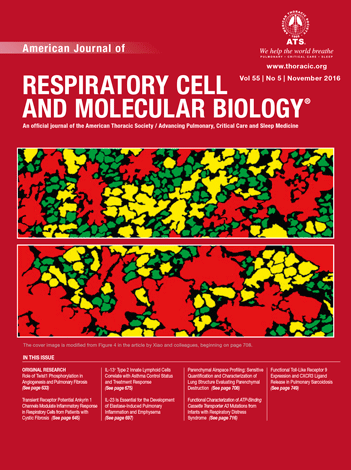 Two former researchers at Duke University at the center of a lawsuit by a whistleblower to recoup millions in federal funding have lost yet another paper.
Two former researchers at Duke University at the center of a lawsuit by a whistleblower to recoup millions in federal funding have lost yet another paper.
This is hardly the first retraction for Erin Potts-Kant, who used to work in the pulmonary lab of now-retired William Michael Foster. Earlier this year, a lawsuit filed by a former colleague of Potts-Kant and Foster was unsealed alleging that the pair — along with the university — included fraudulent data in materials involving more than 60 grants, worth hundreds of millions of dollars.
That is the legal side of their story. The science publishing side is that Potts-Kant and Foster have been steadily adding to their list of retractions — this paper represents her 16th, and his 13th.
Here’s the notice for “Nitric oxide mediates relative airway hyporesponsiveness to lipopolysaccharide in surfactant protein A-deficient mice:”
Following an inquiry at Duke University, the authors were informed that the flexiVent data reported in Table 1, Figure 1, and Figure 7 provided by the animal pulmonary physiology laboratory at Duke University may have been unreliable. An independent laboratory at Duke University led by Herman Staats was therefore asked to repeat the pulmonary physiology experiments. The laboratory was able to substantiate the results shown in Table 1 and Figure 1. However, the laboratory could not confirm the major finding of the publication that treatment with the inducible nitric oxide synthase-specific inhibitor 1400W abrogated relative airway hyporesponsiveness in LPS-treated SP-A -/- mice, nor could it confirm that treatment with 1400W further enhanced airway responsiveness in LPS-treated wild-type mice, as reported in Figure 7. Thus the data obtained from the repeated experiments do not support the main published conclusion that the relative airway hyporesponsiveness of the LPS-treated SP-A -/- mice may be at least partly attributed to an inducible nitric oxide synthase-dependent mechanism.
In addition, the animal physiology laboratory at Duke University maintained a portion of the SP-A -/- mice and also provided an LPS stock solution that was used in Figure 6. However, the experiments in Figures 2 through 6 were generated an analyzed by laboratories other than the Duke animal pulmonary physiology laboratory; these data were not part of the unreliable flexiVent dataset.
We apologize to our colleagues and the scientific community for any inconvenience this might have caused.
The 2011 paper in the American Journal of Respiratory Cell and Molecular Biology has been cited four times, according to Clarivate Analytics’ Web of Science, formerly part of Thomson Reuters.
Potts-Kant (listed as “Potts”) and Foster are both middle authors on the paper; most of the other authors, including the first and last authors, are also listed as based at Duke. When we were reporting on the lawsuit for a recent feature in Science, our inquiries to Duke employees were directed to a spokesperson, who said the university had launched a misconduct investigation.
In September, another journal issued a notice correcting some aspects of a paper co-authored by Potts-Kant and Foster, following repeat experiments by Staats and the National Institute of Environmental Health Sciences.
Potts-Kant now has 16 retractions, four corrections, four partial retractions, and three expressions of concern. She had one other expression of concern, which turned into a retraction (included in the 16). Foster’s total is 13 retractions, along with multiple corrections, partial retractions, and expressions of concern.
Many of the previously issued notices also cite problems with unreliable data, stemming from the use of a flexiVent machine, which Potts-Kant operated, that measured lung function in mice.
Like Retraction Watch? Consider making a tax-deductible contribution to support our growth. You can also follow us on Twitter, like us on Facebook, add us to your RSS reader, sign up on our homepage for an email every time there’s a new post, or subscribe to our daily digest. Click here to review our Comments Policy. For a sneak peek at what we’re working on, click here.